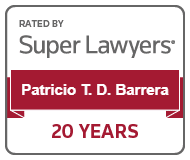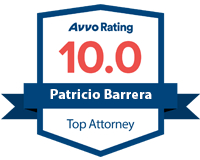Frequently Asked Employment Law Questions

>At Barrera & Associates, our lawyers possess an intimate understanding of employment law in California. We fight to secure results for our clients across the greater Los Angeles area. Below, you will find answers to many of the frequently asked employment law questions our office receives. Please reach out to our firm, located in El Segundo, today to learn more by calling 424-352-0716 or by sending us an email to schedule an initial consultation. Se habla español. Founding attorney Pat Barrera is fluent in Spanish.
Q: Under What Circumstances Can I Use FMLA Medical Leave?
If you, or an immediate member of your family, experience a serious or incapacitating illness that requires inpatient medical treatment or long-term outpatient care, you may be entitled to obtain time off under current Family Medical Leave Act (FMLA) laws. Additionally, if you give birth or adopt a child, FMLA may provide up to 12 weeks of unpaid leave to permit you time to adjust to the demands of having a new child in the home as well as to allow recovery for pregnant mothers who give birth.
Q: How Can I Determine If The Harassment I Experience At Work Is Illegal?
If a co-worker, supervisor or other individual harasses you in the workplace, it is best to address the issue right away with your boss and human resources department. If the harassment you experience is directed at your sex, national origin, age, religious affiliation or disability, it is illegal and may be punishable under current federal or state laws. Isolated incidents are not typically brought forward to a court of law unless the damages are egregious, such as sexual abuse or assault.
Q: What Is Considered Compensable Work Time Under Current Wage And Hour Laws?
Any work you perform for an employer is considered compensable under wage and hour laws. This law even applies to situations where an employee performs work outside of normal hours, even if the employee was not directed to complete the work. This work is entitled to compensation via overtime if it exceeds an established 40-hour weekly work schedule, and in some cases, if it exceeds eight hours a day. Additionally, this law establishes which pre- and post-work activities are not compensable.





